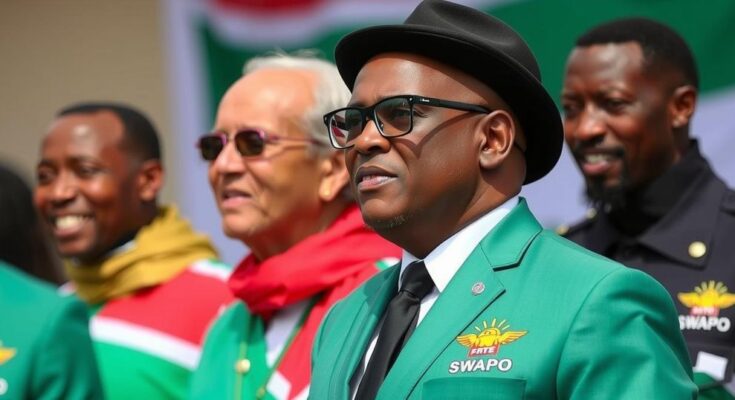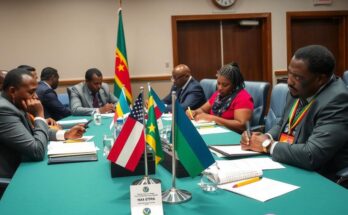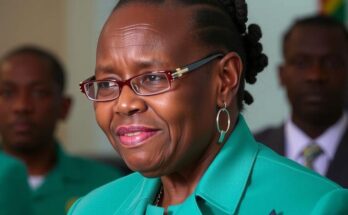Namibia’s Swapo has retained power but suffered electoral setbacks, reflecting a broader trend in sub-Saharan Africa where incumbents are increasingly facing defeats due to public dissatisfaction with governance and economic conditions. This year has witnessed significant losses for several ruling parties, including Botswana’s, Mauritius’s, and Senegal’s, indicating a shift towards a more dynamic and accountable political landscape in the region.
Namibia’s ruling party, the South West Africa People’s Organisation (Swapo), has successfully maintained its power for over three decades but has experienced a significant decline in electoral support. Official results indicate that Netumbo Nandi-Ndaitwah became Namibia’s first female president by securing 57% of the presidential vote. However, opposition parties contest the election results, citing logistical challenges and irregularities. Swapo’s performance in the parliamentary election was its worst, losing 12 seats and barely retaining a majority.
The electoral landscape in sub-Saharan Africa has been tumultuous this year, with many governing parties facing substantial losses. The economic downturn, rising public intolerance of corruption, and the emergence of organized opposition have motivated voters to hold incumbents accountable. Notably, the Botswana Democratic Party faced an overwhelming defeat in October’s elections, dropping from 38 to merely four parliamentary seats, while the governing party in Mauritius suffered a similar fate in November, winning only two seats.
Similarly, Senegal and Somaliland also witnessed opposition victories. The Senegalese election was particularly dramatic, as key opposition leaders faced government repression but mobilized the public effectively, leading to a decisive victory. Furthermore, even in cases where governments have technically retained power, such as South Africa’s African National Congress (ANC), their political influence has been significantly undermined, evidenced by the ANC receiving less than 50% of the vote for the first time since 1994, leading to a coalition government formation.
Overall, this year has marked a notable shift in the political dynamics within the region, with many traditional ruling parties struggling to maintain their dominance amid widespread public dissatisfaction with the state of governance and economic conditions. The perception of government incompetence has fueled opposition momentum across various nations, with parties adopting innovative strategies to ensure electoral integrity and enhance buoyancy in the political sphere. Such trends suggest that the next elections, including those in Ghana and Malawi, may further challenge the status quo.
Despite the global surge towards authoritarianism, Africa’s recent electoral landscape reveals a remarkable degree of democratic resilience, as civil society and opposition groups mobilize against failing administrations, holding them accountable for their actions. This warrants greater attention from global observers regarding the viability of multiparty politics in the region, highlighting instances of successful political transitions that contrast starkly with broader authoritarian trends worldwide.
The electoral situation in Namibia reflects a broader trend affecting incumbents across sub-Saharan Africa. Many governing parties, historically seen as resilient, have recently faced unprecedented challenges and significant electoral defeats. Various factors, including economic hardship, rising corruption, and robust opposition movements, have catalyzed voter discontent and diminished governmental power. This context suggests a shifting political paradigm within the region, where citizens increasingly demand accountability from those in power. The developments in Namibia serve as a microcosm of these broader dynamics, indicating potential for greater democratic engagement.
In conclusion, Namibia’s recent elections serve as a reflection of a notable political shift occurring across sub-Saharan Africa, wherein long-standing ruling parties are beginning to face substantial electoral setbacks. Factors such as economic dissatisfaction, public intolerance of corruption, and the rise of organized opposition movements have been pivotal in encouraging voter turnout against incumbent governments. This phenomenon, emblematic of a broader democratic resilience within the region, may signify a transformative period in African politics, invoking a call for greater scrutiny and support from international observers.
Original Source: www.bbc.co.uk




